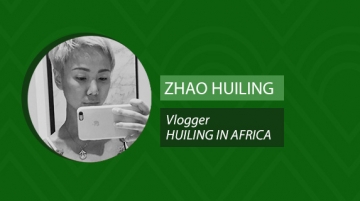
Kenya is the latest African country to integrate Mandarin language studies into its national curriculum, following South Africa, Tanzania, and Uganda. The curriculum development institute in Nairobi said the new Chinese language teaching plan is complete and will be introduced to primary school students beginning in 2020.
There is certainly a good case to be made that speaking the language of your largest trading partner, and one of Kenya’s largest sources of investment, makes a lot of sense. But, language, particularly in Africa is a highly emotive topic.
Daily Nation columnist Eric Wamanji said there are real reasons to be concerned about the negative implications of adding Mandarin Chinese to the national curriculum. “When Mandarin joins our linguistic mix, you can be sure it will also transmit the Chinese value system and rework our consciousness,” he wrote in a recent column.
Eric joins Eric & Cobus from Nairobi to discuss why he thinks Mandarin represents a tool of Chinese “neo-imperialism” in Kenya.
Join the discussion. Do you agree with Eric and that Kenyan should be wary of learning Chinese? Or, do you feel that Kenyans should engage the outside world by understanding the language and culture of their largest economic partner and the world’s second largest economy? Let us know what you think.
Show Notes:
- Daily Nation: Why language and culture are the perfect instruments for expansion of Chinese empire by Eric Wamanji
- Quartz: Kenya will start teaching Chinese to elementary school students from 2020 by Abdi Latif Dahir
- HuffPo: The Latest Linguistic Colonizer: Mandarin in South African Schools by Russell H. Kaschula, Bulelwa Nosilela, Kathleen Heugh, Monica Hendricks, and Pamela Maseko.

Eric Wamanji is a Nairobi-based award winning journalist, documentary filmmaker and communications professional. He has done extensive consulting work for various international non-governmental organizations including the United Nations. In addition to his media communications practice, Eric is also a columnist for the Daily Nation newspaper where he writes on Kenyan international relations, China-Africa issues and domestic economics.








